|
On March 23, the Cluster Sofia Knowledge City offered its followers to participate in a survey to study the needs for professions related to smart cities. Through the questions we asked you, we wanted to understand your opinion on the role and challenges in the development, management and implementation of smart city projects and what the needs are for professional knowledge and skills to achieve higher effectiveness of these projects.
We also asked you why and how smart cities can fail, what is needed to avoid such a phenomenon and how the success of smart city projects can be improved. The survey, which was supported by the Skills4Cities Project, included 45 people from different professional groups, for which we would like to thank them! We are glad that we can now present the results of this survey, which you can see HERE! We are pleased to inform you that the international seminar "The smart city project - the building block of digital transformation" that was organized on 28.04.2022 by the Cluster Sofia Knowledge City and University of Library Science and IT has finished with success. It was a stage of the ongoing international project №:2020-1-BG01-KA202-079071 "Smart skills for smarter cities", funded by the Erasmus+ Programme and supported by members of the cluster and the Digitalization, Innovation and Economic Development Department at the Sofia Municipality. Over 50 participants had the opportunity to be in Launchee Center in Sofia to meet the panelists from Innovative Sofia, GATE Institute, ARIES Transilvania, RISK Electronics, ECQA, Austria, and IDEC, Greece and to listen to their discussions. Most of the participants in the event were representatives of smart city stakeholders, students and those who are interested in smart city technologies, challenges and good practices. The participants' attention was drawn on the needs of professional knowledge and skills to improve the efficiency of digital transformation of cities and on the role of three new professions directly concerned with the developing, managing and implementing smart city projects. For those who are interested to view the presentations of our panelists, click on the links below:
We also thank to our moderators Milena Koleva and Christian Filipov from CSKC. More about the project and the planned outputs and deliverables everyone can find on the project website here. As it was pointed out in the previous articles thanks to the project Skills4Cities we came to the conclusion that three professions are among the most relevant for facing the challenges of the smart city projects implementation and they are.
Role DescriptionSmart City Project Management Consultant or adviser can be an external professional management consultant, hired, based on a time contract or on a project basis. In very rare cases he/she can be also an internal consultant in a job position as an expert in the city administration. Unlike a Smart City Project Managers' direct involvement in the Smart City project lifecycle, professionals who offer such project consultancy devote their time to advising the municipalities on smart city projects or directly the Smart City Project Managers, who are already engaged by the city government or other city's stakeholders for managing a particular project. The city administrations or all city stakeholders pay for project management consultancy services if they lack project management expertise in this specific area or need an impartial party to evaluate the work of Smart City Project Developers or Smart City Project Managers. This approach seems to be growing, as more cities over the world report using outsourcing or contract project management services, according to some surveys. The SC-Project Advisors bring specialized skills and knowledge to assist the implementation of such projects in the cities as well as in making the best possible decisions in resolving concrete challenges that Project managers meet during the life cycle of the project. They typically provide advice as consultants and sometimes as mentors to SC project managers or in some cases, depending on their contracts they are involved in the oversight and leadership in executing projects from planning to completion. Daily tasks can include managing budgets, resources, and relationships to achieve organizational objectives, as well as planning, developing, and executing schedules to ensure the timely completion of projects. These professionals often define and monitor each project team member’s role and function and coordinate all team activities throughout the lifecycle of a project. Identifying and managing project risks and developing solutions are additional duties. IMPORTANT: What’s the difference between a Smart City Project Manager and a Smart City Project Management Consultant? While both professionals need each other’s help throughout the phases of a project, project managers tend to oversee every aspect that goes into the execution of a project, including resources, people, time, materials, and money. They balance these elements to achieve the objective, no matter what gets in the way. But, when smart city project managers need to understand the specific limitations of each factor, they can count on a smart city project consultant. These professionals help managers of smart cities make sure that proper strategies are being adopted in a project from beginning to end. Responsibilities & DutiesDuring the execution of any project, the SC-project advisor analyses data identifies trends and inefficiencies to prevent problems from arising during the project management. Providing roadmaps and periodic recommendations to the city manager or directly to the project manager are common functions of the role, as is the creation and implementation of mitigation and contingency plans. Other tasks required of an advisor can include:
What is the relation and similarity of this job role to other job roles?To our understanding, this job role (profession) is quite similar and close to other commonly accepted and used in the professional world professions like Certified Management Consultant (CMC), Project Management Consultant, Project Management Service Provider. etc.
As it was pointed out in the previous article thanks to the project Skills4Cities we came to the conclusion that three professions are among the most relevant for facing the challenges of the smart city projects implementation and they are:
This, third consecutive article is about the job role of the Smart City Project Manager (SCPM). Role DescriptionThe role of the Smart City Project Manager (SCPM) can be played by an external professional, hired based on a time contract or on a project basis as well as an internal person that occupies a position in the city administration (in rarer cases). She or he could be a practitioner preferably with at least a bachelor’s degree in ICT/ Electronics/ Computer Engineering, many years of technical expertise, and project management certification, recognized by international project management certification bodies. The Smart City PM could be engaged by the city’s governments or other city’s stakeholders to manage and implement various smart cities projects based on the previously developed terms of reference. She or he may participate also from the beginning of smart city project development, being included fully or partially in participatory work with the Smart City Project Developer, a job role that we have already described in the previous article. Apart from the experience, knowledge, and skills in project management and coordination in general the Smart City PM must be able to demonstrate many other abilities including knowing and effectively explaining the city digital transformation strategy and the specific project approach to external partners audiences, or other stakeholders and the role of the project he/she runs within the context of the strategy documents of the city. The Smart City PM must have strong management skills including strong leadership and team working, the ability to provide strategic guidance, technical oversight, build strong teams, mentor staff, develop work plans, and manage budgets and project expenditures. One of the most important roles of the PM is to effectively manage the network with partners at all levels (local government, development partners, private sector, NGOs, and Academia). More than other project managers the Smart City PM must demonstrate written, analytical, presentation, reporting, and computing skills and familiarity with modern communication systems (internet, world wide web, email, etc), as well as very good knowledge of matters related to the digitalization, ICT policy and regulations in these areas. And because of the nature of the smart city projects, this PM must be particularly well skilled in conflict and change management. As well as Smart City Project Developer she or he must know very well the critical success factors and the usual mistakes one city makes when implementing smart city projects and know good practices as well as have experience with other smart city projects. The Smart City PM monitors and supervises the work of Smart City Consultants (advisers), institutions, government staff, and other partners, facilitate meetings, and, as far as possible, ensures the timely and responsive delivery of outputs and reports. Provides to institutions/consultants visiting or engaged in assignments, including preparing itineraries, appointments and assisting with travel and other logistical arrangements. Responsibilities & DutiesThe Smart City PM provides required technical leadership and administrative support to coordinate and implement project activities across a city while ensuring effective linkages to the core strategy and objectives of the transformation process of the city into a smart city. Prepares and coordinates an annual work plan for submission to the head of digital transformation services. She or he reviews and prepares analysis and research on the sector, using regional and global resources including academia and industry. The PM helps the departments of the municipality in bringing new allies and strengthening the commitment of existing partners. Establishes close collaboration and working arrangements with a interdisciplinary team composed of experts from local government, private sector, NGOs, and other professional associations, to ensure good coordination, collaboration, and timely conduct of Smart City activities. The PM follows through the mobilization of funds/resources from other development partners and institutions to complete the financing of the Smart City projects. Provides periodical reports on the progress of project activities and issues arising. Participates in project meetings and workshops and other activities as required. Prepares the terms of reference and identifies consultants/institutions to undertake assignments in accordance with the approved work plan. What is the relation and similarity of this job role to other job roles?To my understanding this job role (profession) is quite similar and close to other commonly accepted and used in the professional world professions such as Certified Project Manager, Project Management Professional, EU Project Manager.
To be continued... The next article will be dedicated to the description of the second identified job role (profession) namely the Smart City Project Advisor. READ PART 2 OF THIS ARTICLE HERE -------------------------------------------------------------- Cluster Sofia Knowledge City (CSKC) is an association of enterprises from knowledge-intensive industries, universities, R&D organizations related to the chain of production and supply of technologies, products, and services. It is a tool for joint actions of the business, education, and science with urban and public institutions to generate and effectively use knowledge, know-how, and scientific infrastructure for the benefit of the city. The main goal and policy of the cluster are to stimulate the development of the market for intelligent and breakthrough technologies and to attract talents necessary for the digital transformation of businesses and cities. This is the second article from the total of four consecutive articles I started at the beginning of November on the topic of job roles (professions) smart cities need. In the project Skills4Cities we have identified the following three key professions as most important for transforming cities into smart cities:
We have identified these three professional roles as a result of the conducted fast-track desk study - the mapping of the smart city projects within its main domains and also, on the identified challenges that smart city projects face derived from its complex and multidisciplinary field. This article is an attempt to describe the main characteristics of the Smart City Project Developer (SCPD). Role DescriptionSmart City Project Developer (SCPD) can be an external professional, hired based on a time contract or on a project basis as well as an internal person in the job position in the city administration (in rarer cases). She or he is a highly skilled and knowledgeable practitioner who could be engaged by cities or other city’s stakeholders to initialize, demonstrate, lobby, plan, communicate with all of them, and pitch on the city level various smart city projects and know-how to run and facilitate a smoother project acceptance and development in relation with the city's needs, strategies, and tasks. Such a person is considered to have a qualification and experience that enables her/him to easily implement skills and knowledge for general and innovation management as well as project management and managing change in diverse, sophisticated, and conflict areas. Such professionals must know how to study and prioritize the needs of one city, how to engage stakeholders, and how to use good practices of successful smart city projects. He/she is to be a high-level design thinker and conceptualist who can ideate, generate, and defend a feasible initiative that can be turned into a smart city project. He/she knows very well the critical success factors and the usual mistakes one city makes when generating and implementing smart city projects. One of the most important competences for playing such a role is the good awareness and a high level of knowledge of disruptive digital technologies and their areas of application for the needs of the smart cities. Certainly, good knowledge of similar cases over the world and even experience in the implementation of smart city projects will be advantages for being an excellent SCPD. Smart city developers usually prepare smart city project concept notes to use for the next activities they are engaged in. After a concept note for a future smart city project is approved and coordinated throughout the stakeholders, the SCPD should elaborate a Term of reference for the detailed development of the project and together with the Smart City Project Manager, she/he will be engaged to prepare the full-frame and content of the project depending on whether the project will serve for finding grants, raising funds from private investors, or apply for a hybrid investment vehicle. Such a role also requires a set of financial competences such as skills and knowledge for making feasibility analyses, cost-benefit analyses, business, and financial planning, etc. Responsibilities & DutiesIf SCPD is in the job position in the city administration he/she will be responsible for ideating, conceptualizing, and overseeing the results and impact evaluation of various projects for smart cities. If SCPD is not in such a position, then he/she does this work on a contractual basis as an external expert. What does she/he used to preform?
What is the relation and similarity of this job role to other job roles?To my understanding this job role (profession) is quite similar and close to other commonly accepted and used in the professional world professions such as Business Developer and Corporate Projects Developer.
To be continued... The next article will be dedicated to the description of the second identified job role (profession) namely the Smart City Project Manager. READ PART 1 OF THIS ARTICLE HERE -------------------------------------------------------------- Cluster Sofia Knowledge City (CSKC) is an association of enterprises from knowledge-intensive industries, universities, R&D organizations related to the chain of production and supply of technologies, products, and services. It is a tool for joint actions of the business, education, and science with urban and public institutions to generate and effectively use knowledge, know-how, and scientific infrastructure for the benefit of the city. The main goal and policy of the cluster are to stimulate the development of the market for intelligent and breakthrough technologies and to attract talents necessary for the digital transformation of businesses and cities. I think that attracting talent will be one of the most important success factors for cities' management. I do expect to begin a "war" in the frontline of HR (or it has already started) next decade between cities at the global as well as at a regional level. In this war, the role of project managers, advisers, and business developers specialized in the smart city context will become a powerful and long-range gun. This was the reason to run the project Skills4Cities, which already passed halfway through its implementation. This short article will be the first one of in total four consecutive articles I will be publishing on the website of the project and the cluster. All of them will be about the roles and expectations we have in relation to the three professions we identified in the project as most important for transforming the cities into smart cities or in what we usually call "future cities". Creating a smarter urban environment is a multi-sectoral, inter-organizational and intergovernmental task. In order to develop an effective Smart City plan and/or implement a smart city project, it is necessary to bring together people from different backgrounds and with different skills and competencies. These should be usually cross-functional teams composed of individuals from different departments and spheres of expertise brought together to complete Smart City initiatives. Cross-organizational and interdisciplinary teams are the solution in case of integrated plans oriented to a variety of social groups, affected by the problems of shared resources, decreasing budgets, and scarce profit prospects, as in the case of smart city projects (Piercy et al., 2013; Nam and Padro, 2011). Thus, some European cities have started creating dedicated Smart City Departments. Undoubtedly, the administration and other professionals that work for smart cities require new competencies that currently the education systems provide are quite fragmented. Few universities provide a well-balanced curriculum for smart city governance to the learners. The new types of jobs require the experts to be well trained to meet the needs of smart cities. Such learners, being the future drivers of these industries and smart city agents, are the main human resource to fulfil the vacancies of these workforces. Constant improvements in and re-evaluation of the curriculum taught to the learners have to be done regularly to keep the learners up to date in fulfilling the requirements of the industries and corporations. Thus, our understanding is that the new era cities need well addressed vocational training of experts who should upgrade their competencies and skills after their classic (normal & formal) education. Considering the smart city competencies’ needs, we can divide the professionals who are most involved in the process of transforming the cities into smart and implementing smart city plans and activities into three main groups: 1) Internal staff (employees of the cities) of the urban and regional administrations, that are directly committed to the realization of the local government policies, strategies, and plans. From one side these are city officers who are members of the specialized administrations and departments engaged with the smart city matters and from another side, in case of lack of specialized departments, these are regular city officers who could be engaged with the realization of such activities on a project basis. 2) A large group of hired external representatives of the urban economic environment, architects, engineers, as well as technicians who work in the field of technical solutions for smart cities, economists, geologists, cartographers, lawyers, among others, all working as service and equipment suppliers (individuals or companies). 3) Freelance professionals, hired on a project base, who have the competencies to develop, manage and implement smart city projects - milestones of the cities' transformation process. Skills4Cities project defines these professionals as smart city project developers, managers, and consultants. To our understanding, these professionals are the most important agents of change that can motorize the process of transformation. They are design thinkers and very often leaders of the realization of smart city projects. To be continued...
The next article will be dedicated to the third group of professionals the smart cities will be looking for and to the needs for competencies and the roles they can play for the cities. -------------------------------------------------------------- Cluster Sofia Knowledge City (CSKC) is an association of enterprises from knowledge-intensive industries, universities, R&D organizations related to the chain of production and supply of technologies, products, and services. It is a tool for joint actions of the business, education, and science with urban and public institutions to generate and effectively use knowledge, know-how, and scientific infrastructure for the benefit of the city. The main goal and policy of the cluster are to stimulate the development of the market for intelligent and breakthrough technologies and to attract talents necessary for the digital transformation of businesses and cities. Author Dimitar Hristov @Cluster Sofia Knowledge City |
AuthorSkills4Cities Archives
February 2023
Categories
All
|
|
The Smart Skills for Smarter Cities [Skills4Cities] Project No. 2020-1-BG01-KA202-079071 has been co-funded by the Erasmus+ Programme of the European Union.
This website reflects the views only of the author, and the European Commission cannot be held responsible for any use which may be made of the information contained therein |
SKILLS4CITIES |
SUPPORT |
Copyright ®2021 SKILLS4CITIES. All rights reserved.
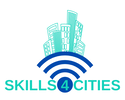
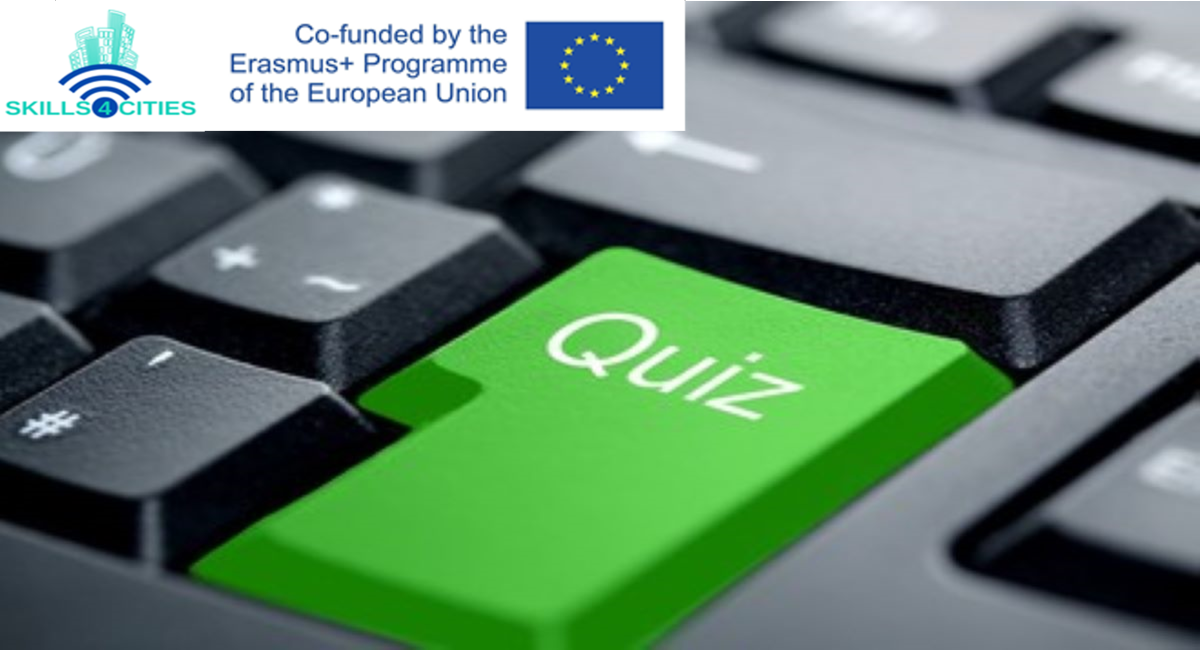
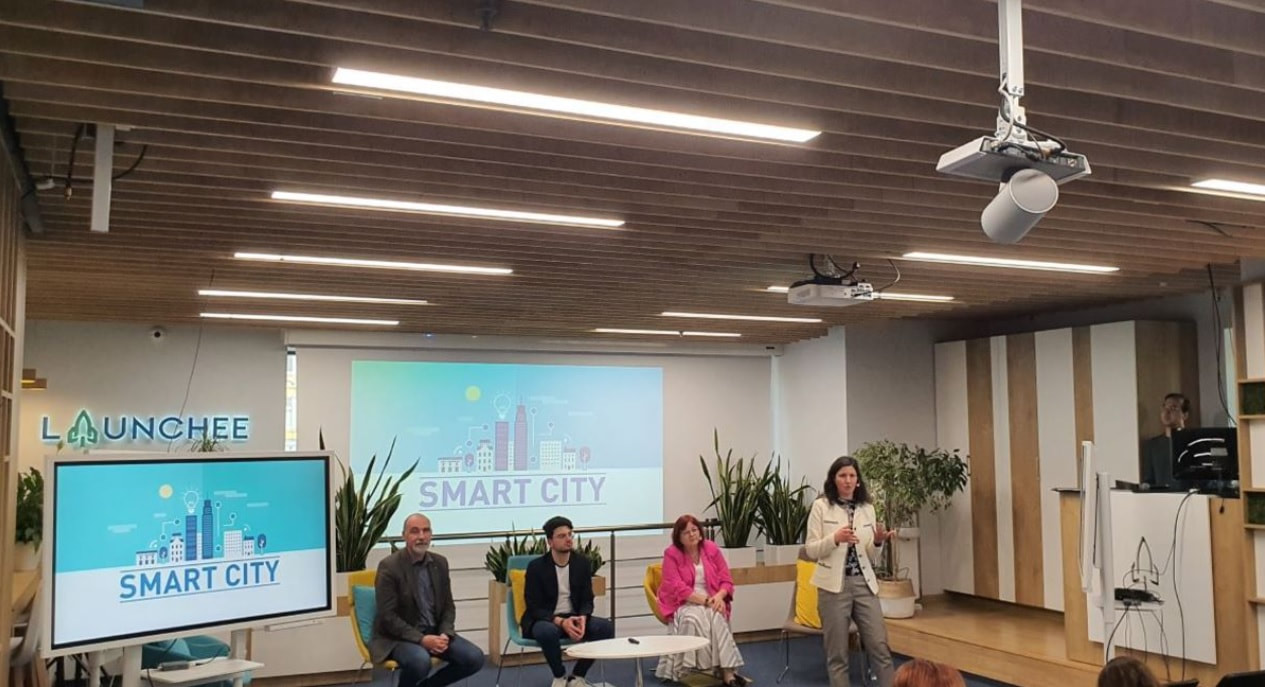
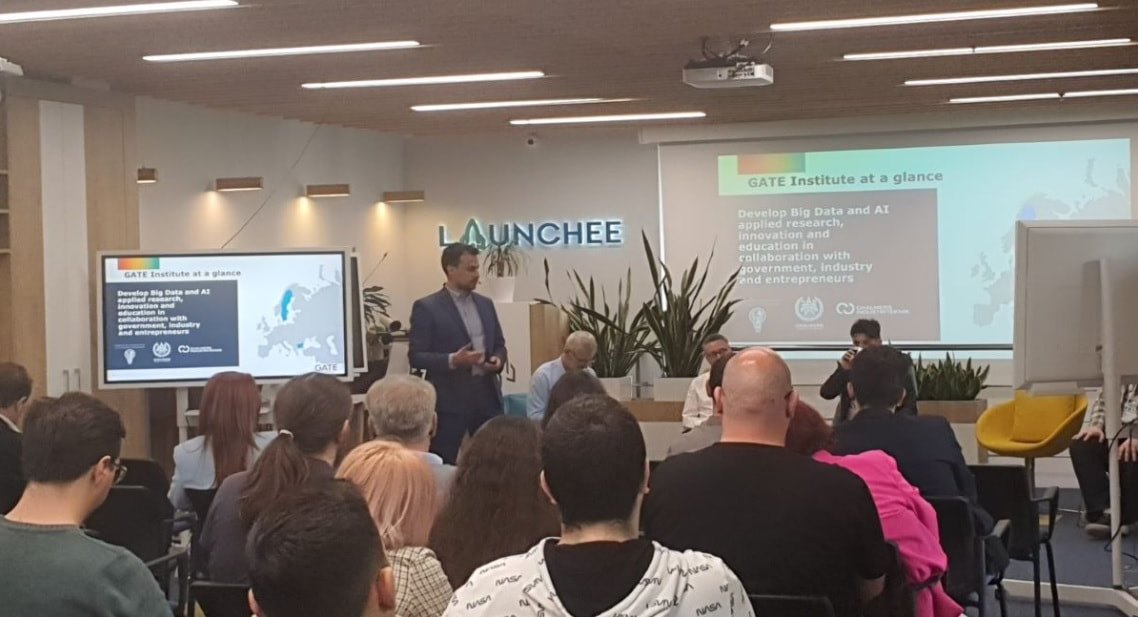
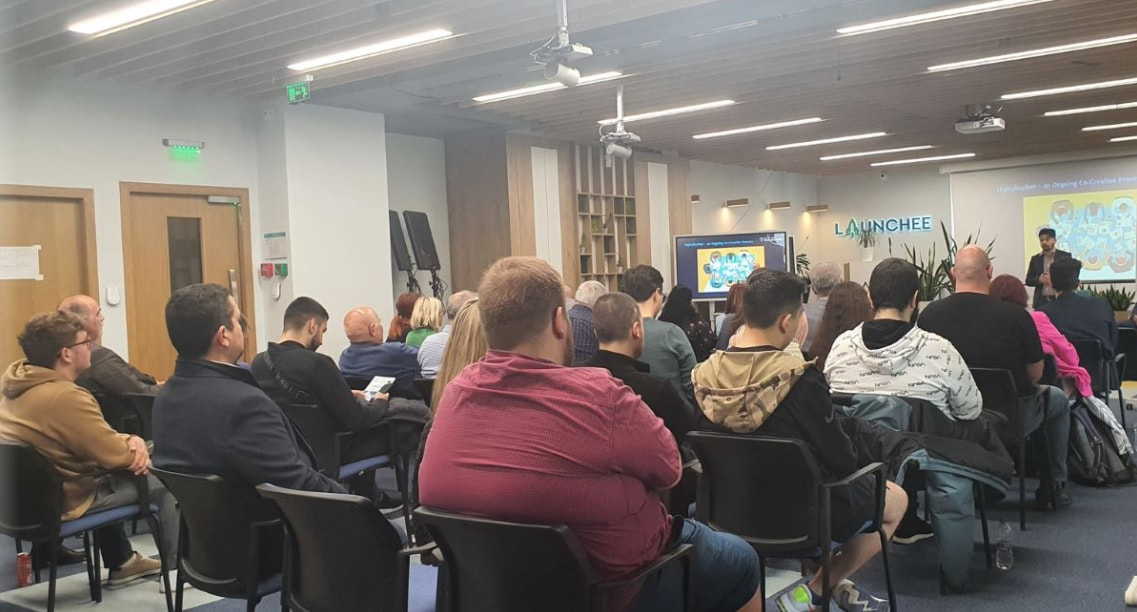
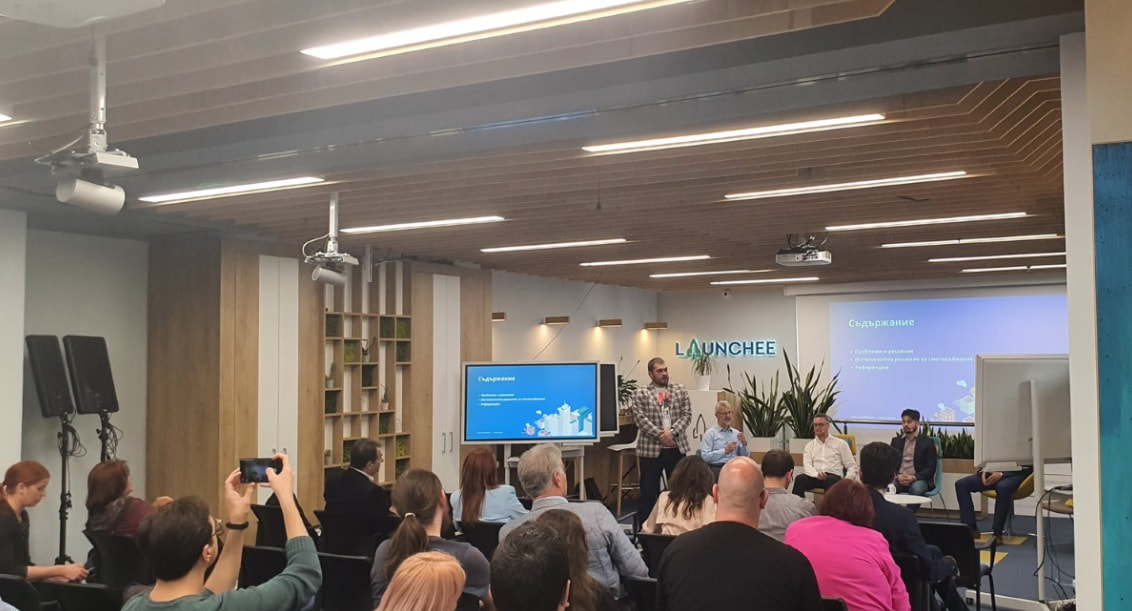


 RSS Feed
RSS Feed
